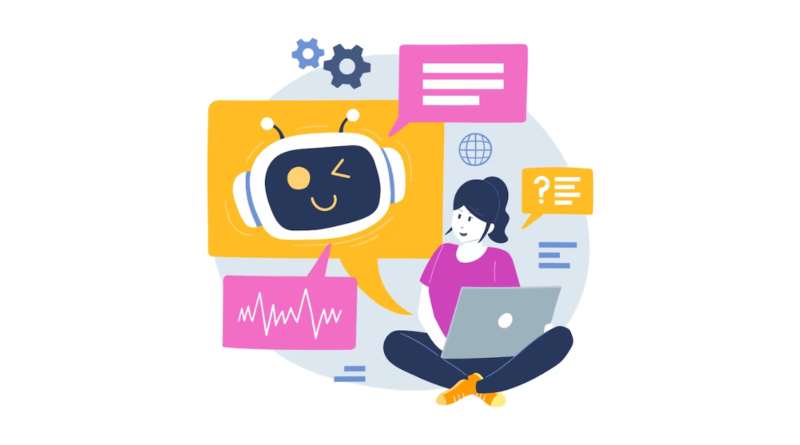Top 12 AI Virtual Assistants for Startups and Businesses (2024)
In the ever-evolving landscape of business operations, AI virtual assistants have become indispensable tools for startups and businesses alike. These intelligent systems not only streamline workflow processes but also enhance productivity and efficiency. With a plethora of options available in the market, choosing the right AI virtual assistant can be a daunting task. To ease your decision-making process, we’ve curated a comprehensive list of the top 12 AI virtual assistants for startups and businesses in 2024, along with their features, pricing, and limitations.
1. Google Assistant
Features: Google Assistant offers voice-enabled assistance, scheduling, reminders, and integration with various Google services such as Calendar, Gmail, and Maps. It also supports smart home devices and offers personalized recommendations based on user behavior.
Pricing: Google Assistant is free to use across compatible devices.
Limitations: Limited customization options compared to other AI virtual assistants.
2. Amazon Alexa
Features: Alexa provides voice-controlled assistance, smart home integration, music streaming, and skills development through Alexa Skills Kit. It also offers compatibility with a wide range of third-party devices and services.
Pricing: Amazon Alexa is available for free with Amazon Echo devices, with additional features available through subscription services like Amazon Prime.
Limitations: Privacy concerns regarding data collection and usage.
3. Microsoft Cortana
Features: Cortana offers voice assistance, task management, calendar integration, and cross-platform synchronization with Windows devices. It also provides proactive suggestions and reminders based on user preferences.
Pricing: Cortana is included with Windows operating systems and is available as a standalone app on mobile platforms.
Limitations: Limited third-party integrations compared to other AI virtual assistants.
4. Apple Siri
Features: Siri offers voice-activated assistance, device control, messaging, and integration with Apple ecosystem services like iCloud, Apple Music, and HomeKit. It also provides context-aware suggestions and personalized recommendations.
Pricing: Siri is included with Apple devices running iOS, macOS, watchOS, and tvOS.
Limitations: Limited customization options and third-party app support compared to other AI virtual assistants.
5. IBM Watson Assistant
Features: Watson Assistant offers enterprise-level AI capabilities, natural language processing, chatbot development, and integration with IBM Cloud services. It also provides analytics and insights for improving customer interactions.
Pricing: IBM Watson Assistant offers various pricing plans based on usage and features, with a free tier available for basic functionalities.
Limitations: Complexity in setup and configuration, requiring technical expertise.
6. Samsung Bixby
Features: Bixby provides voice assistance, device control, and integration with Samsung Galaxy devices and services. It also supports visual search, augmented reality features, and personalized recommendations.
Pricing: Bixby is included with Samsung Galaxy smartphones and smart home devices.
Limitations: Limited availability on non-Samsung devices and ecosystems.
7. Salesforce Einstein
Features: Einstein offers AI-powered analytics, predictive insights, and automation capabilities for sales, marketing, and customer service operations. It also integrates seamlessly with Salesforce CRM and third-party applications.
Pricing: Salesforce Einstein is available as part of Salesforce’s subscription-based CRM packages, with pricing based on usage and additional features.
Limitations: Requires integration with Salesforce CRM for full functionality.
8. Oracle Digital Assistant
Features: Oracle Digital Assistant provides AI-driven chatbot development, natural language understanding, and integration with Oracle Cloud services and enterprise applications. It also offers multichannel support for web, mobile, and messaging platforms.
Pricing: Oracle Digital Assistant is available as part of Oracle Cloud subscription plans, with pricing based on usage and additional services.
Limitations: Complexity in deployment and management, requiring Oracle Cloud expertise.
9. SAP Conversational AI
Features: SAP Conversational AI offers chatbot development, natural language processing, and integration with SAP business applications and services. It also provides analytics and reporting tools for optimizing conversational experiences.
Pricing: SAP Conversational AI offers various pricing plans based on usage and enterprise requirements, with a free tier available for basic functionalities.
Limitations: Limited compatibility with non-SAP systems and platforms.
10. Cisco Webex Assistant
Features: Webex Assistant provides AI-driven meeting assistance, transcription, action item tracking, and integration with Cisco Webex collaboration tools. It also offers voice commands for controlling meetings and devices.
Pricing: Webex Assistant is included with select Cisco Webex subscription plans, with additional features available through premium tiers.
Limitations: Limited availability of advanced features in lower-tier plans.
11. Nuance Dragon Assistant
Features: Dragon Assistant offers voice recognition, dictation, transcription, and productivity tools for individuals and businesses. It also supports customization and personalization for specific workflows and preferences.
Pricing: Nuance Dragon Assistant is available as a standalone software package for desktop and mobile devices, with pricing based on licensing and features.
Limitations: Requires training and adaptation for optimal accuracy and performance.
12. Zoho Virtual Assistant
Features: Zoho Virtual Assistant provides AI-powered automation, task management, and integration with Zoho’s suite of business applications. It also offers multichannel support for web, email, and social media interactions.
Pricing: Zoho Virtual Assistant is included with select Zoho subscription plans, with additional features available through premium tiers.
Limitations: Limited customization options compared to specialized AI virtual assistants.
Conclusion
the selection of an AI virtual assistant depends on the specific needs and requirements of your startup or business. Each of the mentioned virtual assistants offers unique features, pricing models, and limitations. By carefully evaluating these factors and considering your workflow processes, you can choose the most suitable AI virtual assistant to enhance productivity and streamline operations in 2024.




